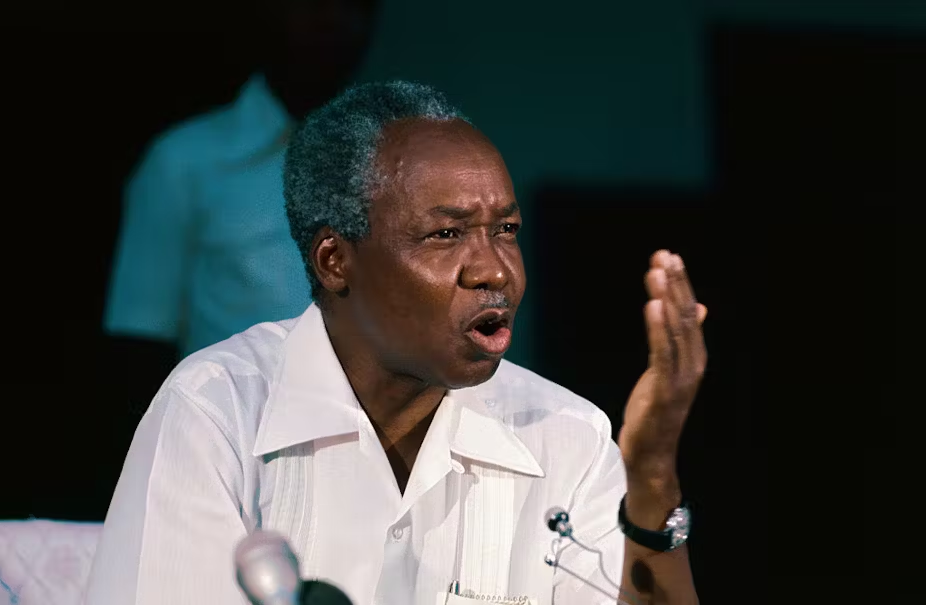Since the history of Africa started to be written, youth have occupied very convincing political positions. Though Africa has few examples of prehistoric youth and their wonderful political achievements, the only figures presented were Tshaka Zulu, Askia Muhamed, Kinjekitile Ngwale, Mtwa Mkwawa, and Mangi Sina, among others.
Nonetheless, they all appeared to be fairy tales. Still, Africa managed to have heroes who stood to liberate the continent from apartheid and colonialism. For example, they buried Nyerere not because he was dead in 1999 but because Western history about Africa denied recognition of his contribution to the struggle not for his country’s freedom but for the rest of Africa. However, that does not mark the end of youth’s potential.
Does the phrase “history repeats itself” have any relevance to the role of youths in politics in post-colonial history? Can the phrase be extended to modern times, specifically in Tanzania, where the general election of 2024/2025 is on the horizon? Are youth subjects or objects of politicians in Africa and Tanzania? This insight intends to explain youth’s potential significance in democratising Africa.
As Bassirou Diomaye Faye, Senegalese youth President, stands to symbolise what modern youth are capable of doing, it is alarming to equip and stand still not only in entrepreneurship, science and technology, and entertainment as tradition but also in leadership, politics and administration, since political positions have been dominated by age, no wonder they manipulate institutions to bar youth from holding top public offices. Regardless of the context and advantages that the youth of one part of Africa still have, the other parts with completely different contexts can choose to fight to bring about the change that everyone desires.
Also, read Tired of Unity and Peace? Who Bewitched Tanzania?
Is Nyerere’s effort worth an example for modern struggling for political positions? The answer is NO! Since it was not the struggle for independence that most of us think but rather was preparation to achieve self-determination under the supervision of the British, the British government provided potential spaces for Tanganyikans to step up and hold political space, which was contrary to Kenya since Kenya was under the real British dominion and not trustee as it was the case in Tanganyika.
Nevertheless, Nyerere was the prominent freedom fighter on the continent, backed by Nkwame Nkurumah. The confidence and courage of the then-youth can not be ignored. Post-colonial and recent political space is over-dominated by the aged, who, if not considered wise, have traditions and customs that make people regard them as one.
Still, they are corrupted in every way and bar youth from holding space in politics, leadership, and administration instead of preparing them. Age-go politicians are not afraid of changes that youth can bring about, but they fear where to feed their stomachs and who will fund their luxurious trips to Dubai, the USA, and the UK, to mention a few.
Youth have never been short of innovation and creativity. When they become hungry for power, they form or join associations and are hypocritically humbled age-go politicians to find the base for their rises.
For example, I think “chawa” in a political context is a natural response to occupy political spaces by blindfolding age-go politicians that youths are following their rotten footprints but are contrary, some youths have gone so far to violets rights and freedom of others to portray political competence before aged who hold powers consider Paul Makonda political practices as a fit example. I set the parameters that youth should consider to exploit the positive impacts of “Uchawa”.
Enhancing competitiveness in intra- and inter-parties politics. Imagine all youths standing with “Mama Anaupiga Mwingi” or ” Nasimama na Mama” or “Samia Mitano Tena.” No wonder only irrational individuals or rational people who think not of a national future but of their stomachs could not dare challenge or question the regime’s effectiveness and commitment in the course.
Competition left politicians with no options but to be responsible and active in their duties to build a legacy that will guarantee their reelection, contrary to branding and blowing trumpet on radio stations, television programmes and posters that kill courage to challenge and question the effectiveness and efficiency of the system culinary to falling of voters turnout.
Read Government Briefing Highlights: Addressing Uncertainties Around Rufiji Floods.
Advocating for participation not only in political spaces but also in civil society organizations and other forms of social relations. Although civil organizations have been colonized due to institutionalisation and fund-seeking, they still play an important role in raising awareness and activating citizens to discuss and consent on matters of common interest.
There is no doubt that political participation is limited to voting and not voting, referendums that do not care about people’s demands, considering DP World controversies and incrimination of advocate Boniface Mwakubusi, among others, and attending rallies that set top-down agendas.
Tanzanian youth have not yet challenged the system aggressively to let youths lead the court to promising ends. Passive approaches such as ‘chawa’ have been corrupted from being a natural response and defensive mechanism of youths to safeguard their political position to a dirty game dominated by people who ignore the intellectual importance of national development.
It’s a shame that a segment of educated youths does not see the benefits of schooling or forgets that national development projects and contracts need intellectuals to negotiate and review what is best for the country and set policies that promote progress in socio-economic and political aspects.

